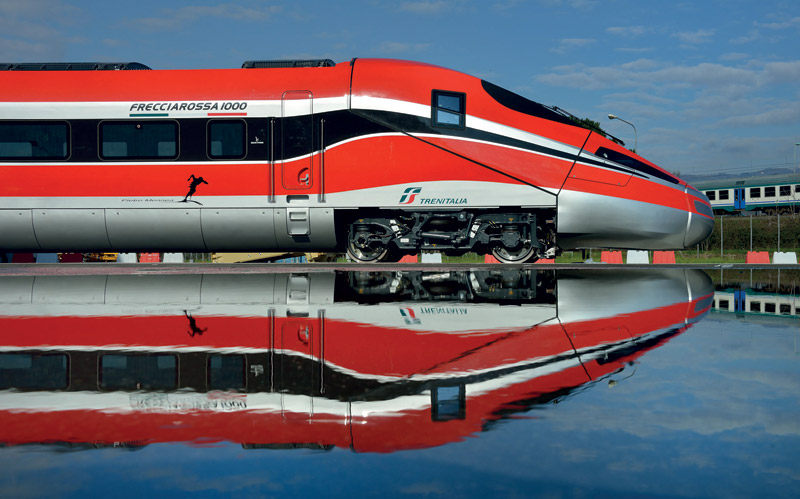In a bid to make trains a more competitive alternative to flying, Italian state-owned train operator FS plans to launch high-speed rail services between some of Europe’s biggest cities, which could include stops in Brussels.
The Italian state-owned train operator Ferrovie dello Stato Italiane (FS) is exploring options to offer more high-speed connections between major European cities such as Brussels, Amsterdam and Berlin.
Trenitalia, the primary train operator in Italy and a subsidiary of FS, has already expanded into some cross-border high-speed rail services, including linking Milan and Paris. It is also looking to connect Milan and Munich, a pilot project which was earlier this year selected by the European Commission to receive support.
Detailed plans are now also underway to connect Paris and Barcelona via a high-speed rail line. In an interview with the Financial Times, the company's Chief International Officer Carlo Palasciano noted that an expansion could further include stops in Brussels, Amsterdam and even Berlin. This was confirmed by FS News, the online publication of FS Gruppo Italiane.
"Among the new routes, there could also be a Brussels-Amsterdam link. The objective remains the same as ever: to make the train a more attractive option for passengers, also for connecting major European capitals, thus developing increasingly sustainable mobility," an FS News article read.
Exploiting opportunities
International passenger transport by rail has been liberalised through an amendment in legislation in 2010, while domestic rail passenger transport is being progressively opened up to competition. As of December 2019, all subsidised rail passenger services in the bloc have been subject to mandatory, open tendering.
FS is looking to take advantage of this amendment, which obliges countries to allow competition on their high-speed networks, thereby making it possible for private companies and state operators from neighbouring countries to run trains on infrastructure across the region.
"FS is looking to increase our presence in Europe by exploiting the opportunities offered by the liberalisation of the European rail market. This new panorama opens up interesting prospects in the high-speed sector, as has already been the case for some time in local passenger transport."
Banking on the green momentum
The EU legislature "aims to support the shift to more sustainable transport modes," helping to expand the market to make rail a more competitive and affordable alternative to flights.
Palasciano confirmed FS was interested in the Brussels to Amsterdam route, which he said is a very popular line. "We’re currently assessing how we could be possible partners or actors in that part of Europe." He added that the study of the Brussels to Amsterdam market was running in parallel with plans to launch a Paris to Barcelona route.
"Why not also continue from Paris to the east side — so Brussels to Amsterdam?" Palasciano asked. He added that FS could eventually operate a service to Berlin.
Related News
- Twice as many high-speed trains between Belgium and the Netherlands from 2024
- Rail revolution: Demand for train travel held back by structural obstacles
However, while the 2019 change in legislation has theoretically opened doors for private and public railway companies to venture abroad to create new connections, the lack of suitable infrastructure for high-speed rail services in Europe continues to be a stumbling block, resulting in few high-speed rail lines between neighbouring states.
A report published by Europe's Rail earlier this year highlighted that the establishment of a European High-Speed Rail (HSR) Network connecting the main European cities and regions would require high investment costs averaging to €550 billion. However, it stressed that this would in return deliver a net positive benefit in the range of €750 billion to society.
This is also before counting the environmental gains that a developed and affordable HSR network would bring.

